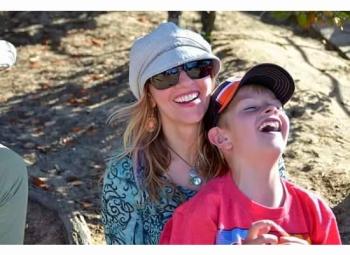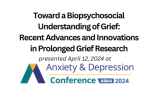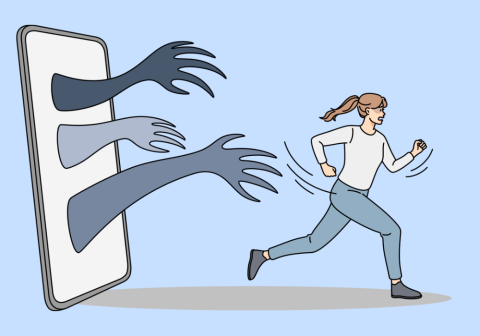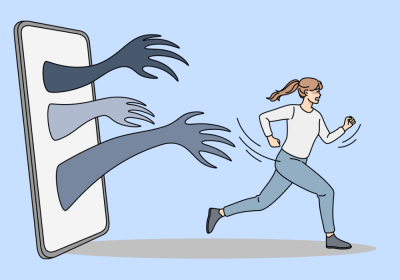Validation and the Power of Stories

My five-year-old daughter was napping, and in the quiet, I sipped an iced coffee and scrolled through grief videos on TikTok. A “grief expert” appeared and wanted to share two important things you should say to a grieving person.
I am a grieving person.
My son Riley was born with a complex heart defect and endured five open-heart surgeries in the first four years of his life. He died following his sixth heart surgery when he was in sixth grade. I’ve been living with PTSD since he was born in 2003. I lived with anticipatory grief during his 11.5 years. I’ve been a grieving mom since he died in 2014.
There have been long periods of time when I have not wanted to get out of bed. There have been periods of time when I’ve wanted to hurt myself. There have been times that voices have told me to cut long lines into my thighs. And for giant chunks of time during the last two decades, I have lived in a world colored by trauma. It was a relief when I read What my Bones Know by Stephanie Foo, and learned that trauma can change you on a cellular level. It validated how I had felt for so long.
As a grieving mom, my skin prickled as I readied myself to hear some advice from an “expert” because sadly, there is a lot of dumb advice out there. This expert said to tell the grieving or traumatized person, “Your feelings are valid.”
When a person you love has shared something intimate with you, has been vulnerable with you, and has told you things about how they feel guilty or how they feel shameful or how they are struggling, consider yourself lucky. When this happens, you’ve been presented with an opportunity for closeness and trust and intimacy. Responding by telling that person that their feelings are valid is like talking to them from the other side of a canyon. You have pushed your friend away and underscored the distance between your life and their life. Granted, that language is a step above “everything happens for a reason,” but you can do better.
It’s easy to do better. Instead of telling your friend or partner or relative or co-worker or neighbor that their feelings are valid, be present, listen with your whole body, and then validate their feelings. Say something simple like, “That makes sense” or, “I understand why you feel that way.” This language closes the gap. It pulls your friend/relative/neighbor in and helps them feel safe.
Feeling safe and cared for and understood is not something that a grieving or traumatized person feels very often. It’s pretty simple. “Your feelings are valid” and validating your friend’s feelings sound similar, but they are vastly different.
During different periods of my PTSD, I have been in individual therapy. I also spent years in couples therapy. I spent a year in a support group for families who have children with congenital heart defects and three years in a support group for bereaved parents. Creating the space in my life to be vulnerable with a therapist, with my husband, and with other parents who are enduring similar traumas has been invaluable. It taught me the act of listening and the importance of supporting someone by being present as they share their own stories and pain. It also taught me the importance of validating someone’s feelings. We all have the power to give that gift to someone we care about.
Other times when I have felt safe is by reading other people’s stories. PTSD and grief are lonely. Reading stories about grief, trauma, medical trauma, secondary trauma, social anxiety, depression, and loss have helped me feel less alone. In 2015, I started a literary journal about life’s definite moments as a grief project. I wanted to submerge myself in loss – all kinds of loss. I love reading the submissions, and I have published stories about loss of identity, loss of health, loss of autonomy, loss of a loved one, loss of a job, loss of relationship, and so on. It really doesn’t matter what the loss is because the feelings underneath are universal.
I love that the ADAA publishes so many personal stories. Stories help us connect with people, feel less alone, validate our feelings, and are vital to people who are struggling with all kinds of mental disorders. ADAA's personal stories offer readers a way to feel less alone. In 2016, Jenni Schaefer had her story published. She wrote: “When I was sucked into what I learned to call the trauma vortex, I often couldn’t distinguish between what was real and what wasn’t. I thought I was going crazy.” I absolutely could relate.
So, in the same way that you can pull a friend in close by listening to them and validating their feelings, you can get your own feelings validated by connecting with others who have had similar experiences in group therapy. When you cannot be with people physically, find solace in other people’s stories. Reading is a small way to take care of yourself. And when sentences and paragraphs feel overwhelming and you cannot read – because some days are like that – you can grab a coffee and search for your community (PTSD, grief, depression, anxiety, panic attacks, and so on) on TikTok and listen to what other people have to say. Some voices will resonate with you, and some, like that “expert’s” advice won’t.
After I shook my head for a few seconds and viscerally disagreed with that video knowing we can do better, I kept on scrolling and sipping my coffee. And I was grateful for all of the other voices that resonated with me.
Read more by Suzanne here: http://www.motherinchief.com/
- Share Your Story and Voice and Help #breakthestigma Around Mental Health
- Support ADAA's Mission - Every Gift Makes an Impact
- Join an ADAA Online Peer to Peer Support Community
- ADAA Find Your Therapist




















